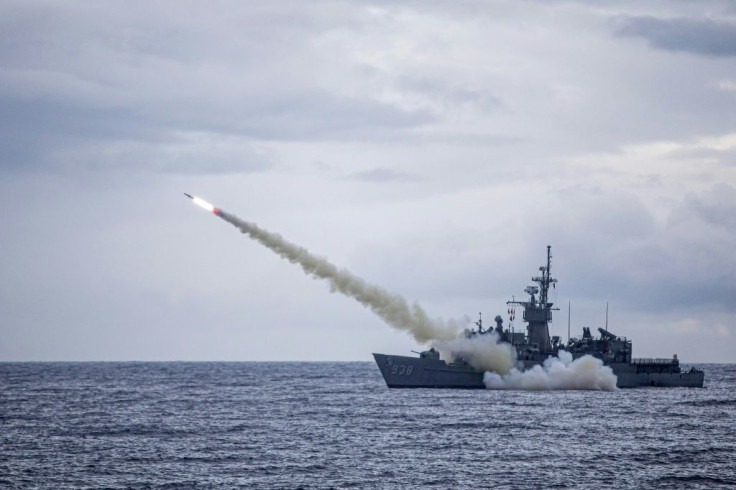Biden To Seek Congress Approval For $1.1 Billion Arms Sale to Taiwan - Reports
KEY POINTS
- The sale could get delayed due to the ongoing congressional recess
- Chinese experts call it yet another ill-intended provocation that will only escalate tensions
- China says the sale would violate the "one China" principle
The U.S. administration is proposing to approach Congress to approve an estimated $1.1 billion arms sale to Taiwan that will include 60 anti-ship missiles and 100 air-to-air missiles, an exclusive report by Politico said Monday.
The report, citing sources with direct knowledge of the deal, said the plans for the arms sale are in their early stages. The package is expected to include 60 AGM-84L Harpoon Block II missiles for $355 million, 100 AIM-9X Block II tactical air-to-air missiles for $85.6 million, and a surveillance radar contract extension for $655.4 million. The Sidewinder missiles will arm Taipei's U.S.-made F-16 fighter jets, the report added.
A related report in the Taipei Times said Sidewinder and Harpoon missiles have been sold to Taiwan previously. It said the sale would be the largest since a $2.4 billion deal in October 2020 and the largest since U.S. President Joe Biden took office. The Biden administration has to date announced five arms package sales to Taiwan.
The report in Politico said, once the notification is formalized, it will require a sign-off by the Senate Foreign Relations Committee and the House Foreign Affairs Committee before the deal can be finalized. Lawmakers are likely to approve the sale, however, the report points out that the process could get delayed due to the ongoing congressional recess.
Reacting to the news, a Global Times report quoting analysts on Tuesday called the planned arm package, "yet another ill-intended provocation that will only escalate tensions."
Following the publication of the report in Politico, the Chinese Ministry of Foreign Affairs did not immediately respond, however, the Chinese embassy in the U.S. told the Russian media agency, Sputnik, on Monday that China would demand that the U.S. stop selling arms to Taiwan as it violates the "one China" principle.
"The U.S. side needs to immediately stop arms sales to and military contact with Taiwan, stop creating factors that could lead to tensions in the Taiwan Strait, and follow through on the U.S. government statement of not supporting Taiwan independence," Sputnik quoted embassy spokesperson, Liu Pengyu as saying.
Tensions in the Taiwan Strait reached their highest level in years this month after U.S. House Speaker Nancy Pelosi visited Taipei. Beijing, which considers the island one of its provinces, condemned the visit and reacted furiously, staging days of air and sea exercises around Taiwan.

© Copyright IBTimes 2025. All rights reserved.






















